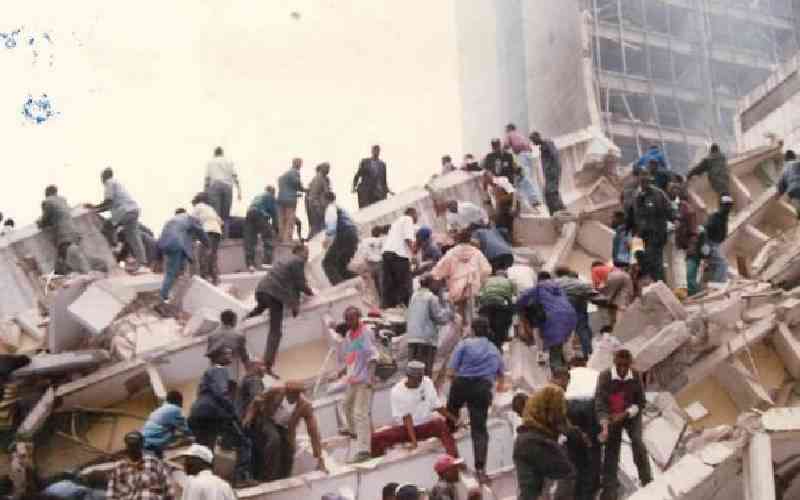×
The Standard e-Paper
Smart Minds Choose Us

It's 7th August 1998. You are heavily pregnant. You go to work as usual. Since it's a Friday you are looking forward to a restful weekend.
As you go about your business, around 10:30am you hear a blast. Its sheer force pushes you to the floor; shards of glass fly all over. The air is filled with distressing cries and agonizing screams - people are calling mama and their maker. At first you think you are dead, but dead people do not move and hear voices, right?